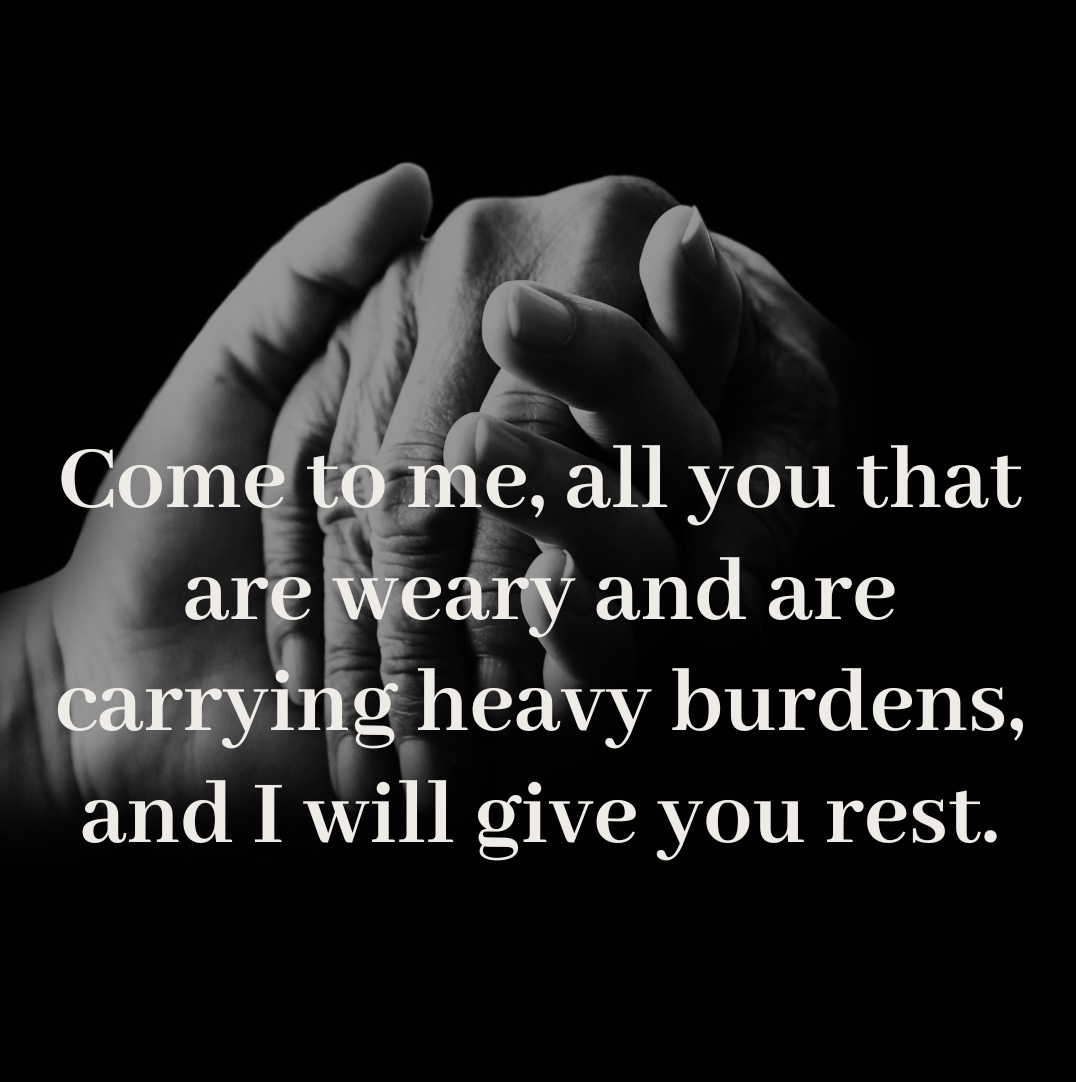REST FOR THE SOUL
Matthew 11:16-19, 25-30
Sixth Sunday after Pentecost
Analysis by Ben Williams
[Jesus spoke to the crowd saying:] 16“To what will I compare this generation? It is like children sitting in the marketplaces and calling to one another,
17‘We played the flute for you, and you did not dance;
we wailed, and you did not mourn.’
18For John came neither eating nor drinking, and they say, ‘He has a demon’; 19the Son of Man came eating and drinking, and they say, ‘Look, a glutton and a drunkard, a friend of tax collectors and sinners!’ Yet wisdom is vindicated by her deeds.”
25At that time Jesus said, “I thank you, Father, Lord of heaven and earth, because you have hidden these things from the wise and the intelligent and have revealed them to infants; 26yes, Father, for such was your gracious will. 27All things have been handed over to me by my Father; and no one knows the Son except the Father, and no one knows the Father except the Son and anyone to whom the Son chooses to reveal him.
28“Come to me, all you that are weary and are carrying heavy burdens, and I will give you rest. 29Take my yoke upon you, and learn from me; for I am gentle and humble in heart, and you will find rest for your souls. 30For my yoke is easy, and my burden is light.”

Silhouette of woman near ocean during susnet – From – https://www.pickpik.com/
The rest found in Jesus is not another burden heaped onto our backs. It is gift freely given, intended to remind us that our identities are not bound up in our production.
DIAGNOSIS: Dying to Rest
Step 1: Initial Diagnosis (External Problem): Mean to an End
Busy-ness makes sense to us. There is always more to do. Ask anyone, “How are you doing?” Their answer will likely be, “Busy!” or some variation; whether that is true or not. But, unfortunately, we are only human. We all need a break! So, we rest as Jesus tells us to, but only long enough to recharge for the work that is left to be done. Our resting can only be justified if it serves our working.
Step 2: Advanced Diagnosis (Internal Problem): An Order and Demand
In our production-oriented society, where work is a measure of worth, we may be given rest as an order. Articles and books are published with titles like, “How Resting More Can Boost Your Productivity” or “Rest: Why You Get More Done When You Work Less.” These titles sound wise and intelligent and are quickly distributed among human resource departments and leadership seminars. Although, when rest is prescribed because it will produce some result, it hardly feels restful.
In his book, Seculosity, David Zahl writes, “Rest is now just a prelude to more work, not a respite from stress but something else to stress over, another area where you may be falling short, another wrench in the self-justification toolkit.” Rest becomes one more thing by which we measure our worth.
Step 3: Final Diagnosis (Eternal Problem): R.I.P.
Like John and the Son of Man eating and drinking, we are damned if we rest, and damned if we don’t. Burnout reaches all of us when our resting is only a means to an end. We disappoint our employers, those we serve and care about, and ourselves. And, what’s worse? We are found guilty before the Lord of the Sabbath for failing to understand that the invitation to rest is meant to be shear gift. Death is the only reward for our efforts; may we rest in peace.
PROGNOSIS: Invited to Rest
Step 4: Initial Prognosis (Eternal Solution): And I Will Give You Rest
“Take my yoke upon you, and learn from me; for I am gentle and humble in heart, and you will find rest for your souls.” The rest found in Jesus is not another burden heaped onto our backs. It is gift freely given, intended to remind us that our identities are not bound up in our production. In Christ’s life, death, and resurrection we find new identities as children of God – mere infants in faith to whom God has revealed the holiness of rest.
Step 5: Advanced Prognosis (Internal Solution): An Invitation and Calling
Rest, then, is no longer a demand or an order. The Holy Spirit invites us to this holy practice of Sabbath because we belong to God. And in that belonging, we remember that God is God, and we are not. The Holy Spirit then calls us to practice this rest regularly. As Kara Root writes in her book, The Deepest Belonging, “By stopping every week on purpose, we acknowledge that there is nothing we can’t set down and step away from. … Life is about something other than doing work and measuring our worth.”
Step 6: Final Prognosis (External Solution): An End in Itself
“Come to me, all you that are weary and are carrying heavy burdens, and I will give you rest,” Jesus says. Rest, it turns out, is an end in itself. We are called to rest so that we may simply be who we were created to be. And simply by being, we offer others an alternative way of life. A life that may genuinely answer the question: “How are you doing?” A life that is truly made whole by the one who creates, redeems, and sustains us.





You must be logged in to post a comment.